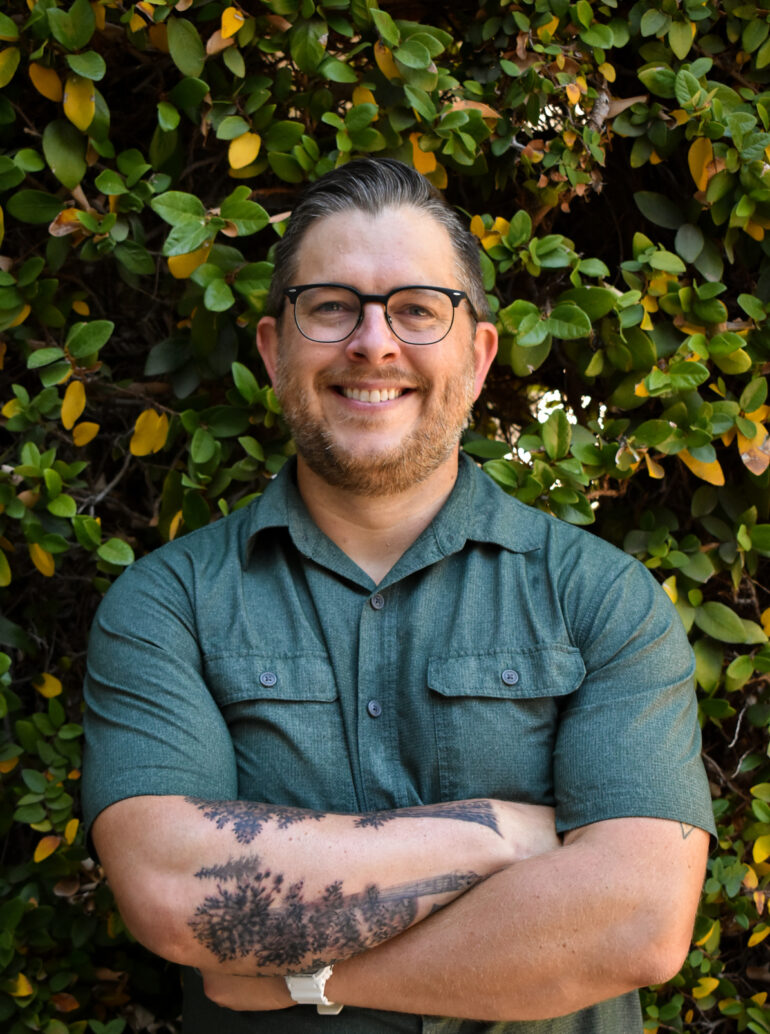Dr. Keefe Reuther has been a lecturer at UC San Diego since 2009. In 2020, he became an assistant teaching professor, instructing courses such as BILD 4 and BILD 5. His research focuses on developing and evaluating curricula that teach undergraduate biology students science process skills, preparing them for real-world applications of biology. By integrating these skills, Keefe aims to cultivate confident biologists who not only master technical abilities but also find joy in their scientist identity. SQ sat down with Keefe to discuss how students’ mental health impacts their development in the field of biology and how his teaching adapts to these challenges.
Q: What implications does your research have for the culture of biology at UC San Diego?
A: Biology isn’t just about memorizing facts. True expertise comes from a deep understanding of fundamental principles. It’s about developing skills to apply these principles in real-world scenarios. This requires knowledge, critical thinking, and the ability to ask the informative questions. Intentional practice is key. I’m most proud of developing BILD 5: Data Analysis and Design for Biologists. This course empowers students with essential skills. They learn experimental design, statistical analysis, information literacy, and computer programming. These are crucial for success in modern biology. I also believe in proactive mentorship. I guide students through career options and graduate school pathways. Additionally, I focus on developing tools to enhance students’ metacognitive skills. This helps them reflect on their growth as scientists.
Q: What are some observations you’ve made about the mental health of students in your classes?
A: Students today face immense challenges. The pandemic, financial pressures, and shifting demands have taken their toll. They are grappling with the long-term effects of past traumas, present stresses, and an uncertain future. When you add the intensity of a rigorous academic program to this, the experience is far more difficult than what I went through as a student. Engaging in self-discovery and nurturing personal passions feels nearly impossible when simply making it through an academic quarter is so exhausting. Despite this, I’m continually impressed by our students. Their resilience in the face of these challenges is unwavering.
Q: How should professors accommodate students facing mental health challenges in the classroom?
A: There’s no one-size-fits-all approach. However, I can share what I prioritize in my teaching. First, I build a classroom environment where students feel comfortable seeking support. From my lectures to my syllabi, I make it clear that student wellness is a top priority. Faculty need to stay engaged in ongoing conversations and professional development. We can always improve how we support students. In my courses, I use many low-stakes assessments. This replaces a few high-stakes exams that control a student’s entire grade. I also allow students to drop their lowest scores on certain assignments. This approach helps all students. It’s especially beneficial for those who need assistance but aren’t comfortable asking for it. Although I can’t influence what happens outside the classroom, I strive to ensure that my courses challenge students without worsening their struggles, while still upholding academic rigor and learning goals.
Q: What kinds of limitations do professors face when it comes to mental health challenges among students?
A: Many of us lack specific training in mental health support. However, we can play an important role by connecting students to the highly trained counselors, advisors, and deans who form the campus support network. Another challenge is identifying students who need help. Serious issues can go unnoticed, especially in large classes. For every student who seeks help, many more remain silent. This makes it difficult to identify those who need support.
Q: What do you think people should know about the mental health of biology teaching faculty?
A: Faculty members face mental health challenges too. Many of us deal with issues like depression or anxiety. We don’t have all the answers, and we’re navigating our own personal struggles as well. If you feel a connection with a professor, reach out. Seek mentorship or simply use their office hours as a quiet space. Don’t hesitate to take that step. Sometimes, a simple conversation can make a big difference. It can be beneficial for both students and faculty.

